
The People's Union of Estonia was a political party in Estonia. Its last leader was Margo Miljand.

The Estonian Reform Party is a liberal political party in Estonia. The party has been led by Kaja Kallas since 2018. It is colloquially known as the "Squirrel Party", referencing its logo.
Res Publica Party was a political party in Estonia that self-identified as conservative. Established as a party on 8 December 2001, the political organisation Res Publica was founded already as early as 1989 and existed as a community of young conservatives, mostly associated with the Pro Patria Union party during the 1990s. Res Publica was a member of the EPP on the European level. It merged with Pro Patria Union in 2006 to form the Pro Patria and Res Publica Union.
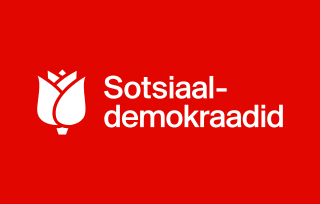
The Social Democratic Party is a centre-left political party in Estonia. It is currently led by Lauri Läänemets. The party was formerly known as the Moderate People's Party. The SDE has been a member of the Party of European Socialists since 16 May 2003 and was a member of the Socialist International from November 1990 to 2017. It is orientated towards the principles of social-democracy, and it supports Estonia's membership in the European Union. From April 2023, the party has been a junior coalition partner in the third Kallas government.

For Fatherland and Freedom/LNNK was a free-market, national conservative political party in Latvia. In 2011, it dissolved and merged into the National Alliance.
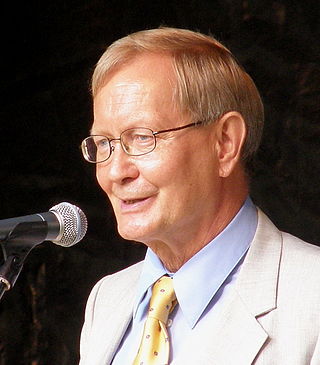
Tunne-Väldo Kelam is an Estonian politician and former Member of the European Parliament (MEP) from Estonia. He is a member of the Pro Patria and Res Publica Union, part of the European People's Party.

Mart Laar is an Estonian politician and historian. He served as the Prime Minister of Estonia from 1992 to 1994 and from 1999 to 2002. Laar is credited with having helped bring about Estonia's rapid economic development during the 1990s. He is a member of the centre-right Isamaa party.

Parliamentary elections were held in Estonia on 2 March 2003. The newly elected 101 members of the 10th Riigikogu assembled at Toompea Castle in Tallinn within ten days of the election. Two opposing parties won the most seats, with both the Centre Party and Res Publica Party winning 28 seats in the Riigikogu. Res Publica was able to gain enough support in negotiations after the elections to form a coalition government.

Parliamentary elections were held in Estonia on 7 March 1999. The newly elected 101 members of the 9th Riigikogu assembled at Toompea Castle in Tallinn within ten days of the election. The elections proved disastrous for the ruling Estonian Coalition Party, which won only seven seats together with two of its smaller allies. Following the elections, a coalition government was formed by Mart Laar of the Pro Patria Union, including the Reform Party and the Moderates. It remained in office until Laar resigned in December 2001, after the Reform Party had left the same governing coalition in Tallinn municipality, making opposition leader Edgar Savisaar new Mayor of Tallinn. The Reform Party and the Estonian Centre Party then formed a coalition government that lasted until the 2003 elections.

Taavi Veskimägi is a former Estonian state official and politician and the managing director of the Estonian electric power transmission system operator Elering.

Tõnis Lukas is an Estonian politician, former Minister of Culture from 2019 to 2021 and Minister of Education and Research from 1999 to 2002 and from 2007 to 2011.

Parliamentary elections were held in Estonia on 4 March 2007. The newly elected 101 members of the 11th Riigikogu assembled at Toompea Castle in Tallinn within ten days of the election. It was the world's first nationwide vote where part of the voting was carried out in the form of remote electronic voting via the internet.

Isamaa is a Christian-democratic and national-conservative political party in Estonia.
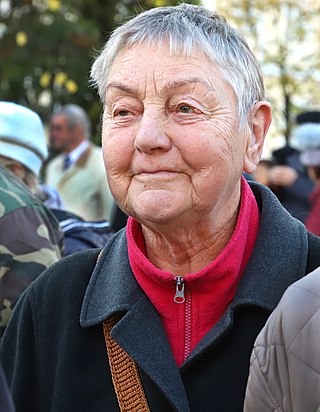
Lagle Parek is an Estonian politician. She served as the Minister of the Interior in the first post-soviet government, led by the Prime Minister Mart Laar.
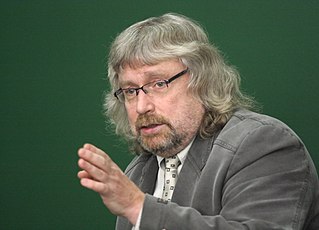
Lauri Vahtre is an Estonian politician, historian, translator and writer.

Urmas Reinsalu is an Estonian politician who served as Minister of Foreign Affairs from 2022 to 2023 and previously from 2019 to 2021. Before that, Urmas has served as the Minister of Defence between 2012 and 2014, and Minister of Justice from 2015 to 2019. Reinsalu is a member and current leader of the Isamaa ("Fatherland") political party, and was the party leader from 2012 to 2015.

Margus Tsahkna is an Estonian politician, leader of new liberal Estonia 200 party since 19 November 2023, former leader of the conservative Isamaa party, former Minister of Defence in Jüri Ratas' cabinet and Minister of Social Protection in Taavi Rõivas' second cabinet. He was sworn in as Minister of Foreign Affairs in the third cabinet of Kaja Kallas on 17 April 2023.
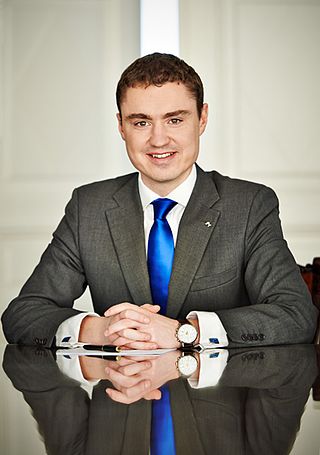
Taavi Rõivas is an Estonian politician, former Prime Minister of Estonia from 2014 to 2016 and former leader of the Reform Party. Before his term as the Prime Minister, Rõivas was the Minister of Social Affairs from 2012 to 2014. On 9 November 2016 his second cabinet dissolved after coalition partners, Union of Pro Patria and Res Publica and Social Democratic Party, sided with the opposition in a no confidence motion. At the end of 2020, Rõivas announced quitting politics, and resigned from his parliament seat.

The Andrus Ansip's second cabinet was the Cabinet of Estonia between 5 April 2007 and 6 April 2011. It was a Triple Alliance coalition cabinet of the free market liberal Estonian Reform Party, conservative Union of Pro Patria and Res Publica and Social Democratic Party.


















